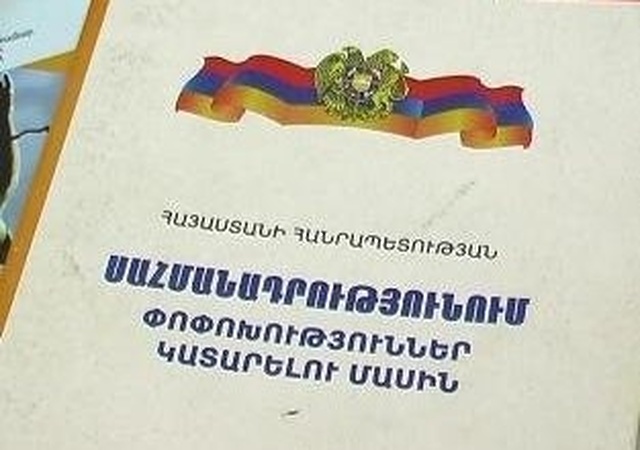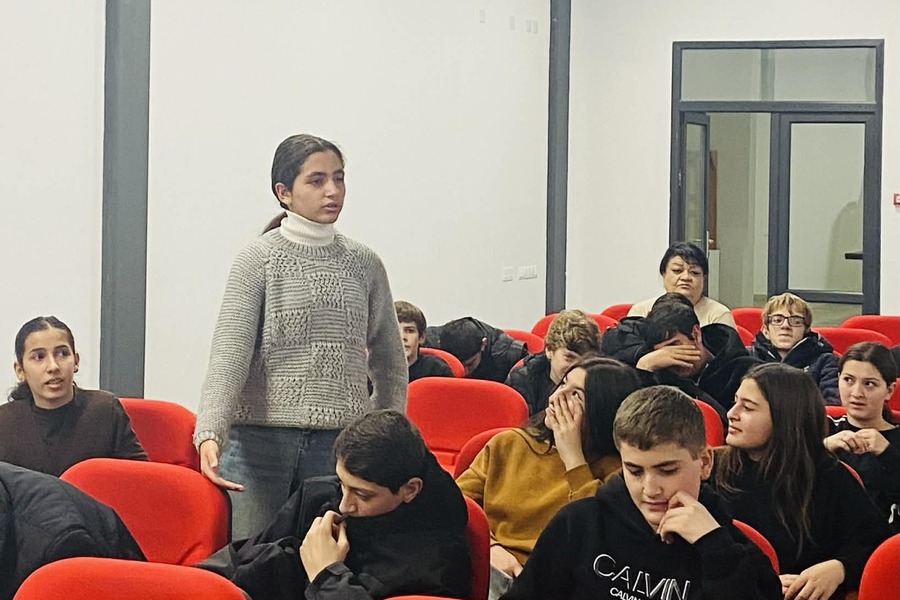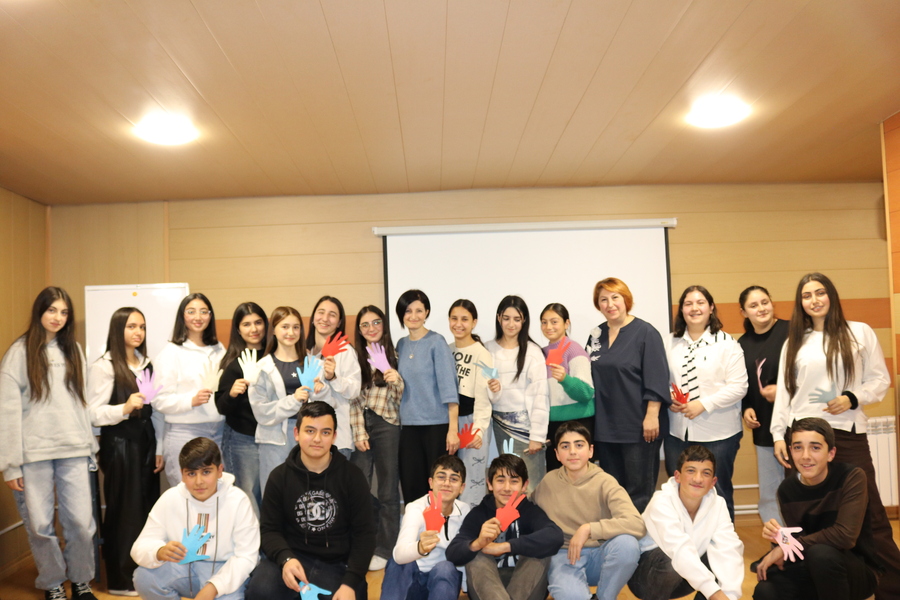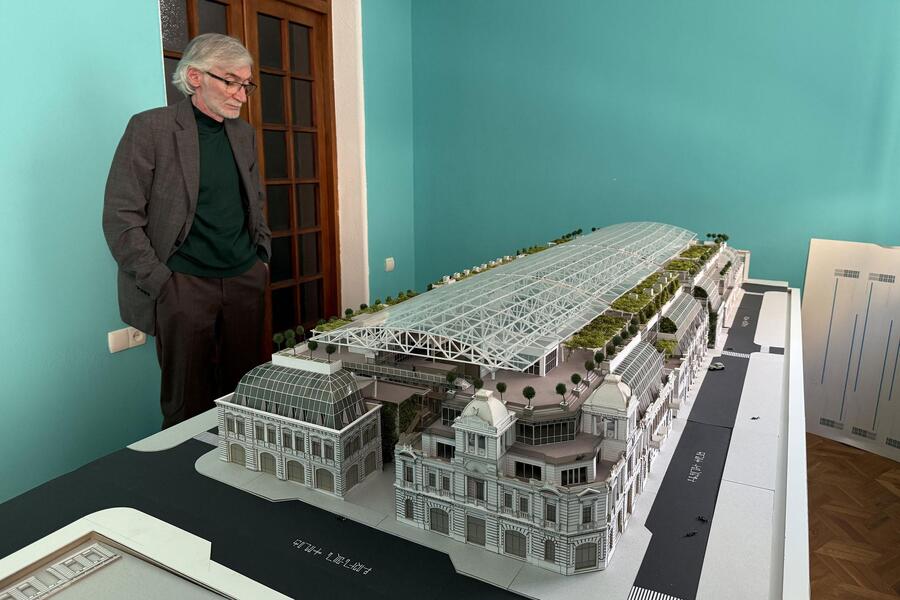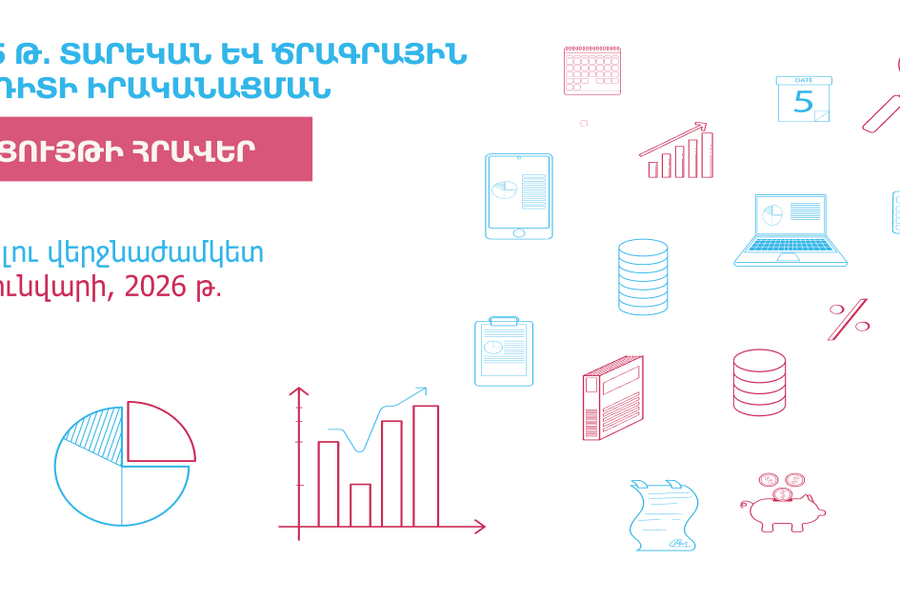Opinion on the non-compliance of the initiated constitutional referendum with the international standards
On September 4, 2013, president Serzh Sargsyan made a unilateral decision to introduce amendments to the Republic of Armenia Constitution and convened a Specialized Commission for Constitutional Reforms under the President’s Administration.[1] The Specialized Commission has developed the concept of constitutional amendments and the draft amendments to the Constitution. Those were also shared with the European Commission for Democracy through Law (Venice Commission), which published its opinion on the draft concept paper in September 2014[2] and the preliminary opinions on various sections in August[3] and September 2015.[4] The last and complete version of the text of amendments was published on August 21 2015 and submitted to the National Assembly. Currently, the draft is being discussed in the parliament and according to unofficial sources, the referendum is planned in the beginning of December 2015.
The proposed amendments to the Constitution of the Republic of Armenia embrace a large volume of issues and change all but the first two articles, which means that the proposal qualifies for a new constitution rather than amendments. Most importantly, the proposed amendments introduce a plan to change the governance system of the country from a semi-presidential to parliamentary one, strengthen and make sustainable the majority rule in the parliament, radically change the system of checks and balances, dilute some critical responsibilities and weaken the state’s role in the protection of a number of human rights.
Though there have not been any political preconditions or a public demand for changing the governance system of the country and there exists a strong discontent on the part of oppositional political parties, many civil society groups and legal experts, the referendum is pushed forward by the authorities rather quickly and aggressively. The planned constitutional changes are naturally believed to be designed for the incumbent president’s desire to stay in power, given that his second term in office expires in 2018 and he is not allowed to be nominated and elected as President for the third term. The constitutional changes will allow him to continue his leadership role in the position of the speaker or prime-minister as well as secure the monopoly power of his political party - the Republican Party of Armenia.
There are serious concerns that the work of the Specialized Commission for Constitutional Reforms was influenced by the conflict of interest of its members as at least 6 out of 9 are immediately dependent on president Serzh Sargsyan. More concretely, two persons are members of the ruling Republican Party of Armenia (one also seats on the Board and the Executive Body) led by president S.Sargsyan. Two are employees of the President’s Administration working under direct supervision of president S.Sargsyan. One holds a high managerial position in Yerevan State University governed by the Board of Trustees led by president S.Sargsyan. Օne is the Prosecutor General who is nominated by the president S.Sargsyan and elected by the parliamentary majority, which is formed by the Republican Party of Armenia led by president S.Sargsyan. Hence, it is natural that the proposed amendments are designed by the mentioned group to serve the interests of the incumbent president rather than those of the people and society.
Though there are ongoing discussions about various aspects of constitutional changes and particularly its consequences from the perspective of human rights and democracy, we find the planned referendum as absolutely unacceptable for the following reasons:
- First, there has not been any objective necessity, such as a political crisis or public demand, which could justify such a hasty change of the governance system. In an absence of objective preconditions, such a controversial transformation should have been subject to broad and lengthy consultations with political and civil society actors and a promotion through a general consensus and strong rationalization, which did not take place. The Armenian public is actually given only two months after the publication of the full text of the amendments to react to the founding document of the state.
- Second, the constitutional referendum is planned in a situation where according to the latest relevant surveys, only 13% percent of women and 12% of men believe in the honesty of elections[5] and about 81% of people do not trust at all or rather do not trust the constitutional reform process.[6] In a true democratic state, the founding document of a state may undergo a radical modification only in a situation of high trust in the authorities and their initiatives. Otherwise, the legitimacy of any process with any outcome will be questioned.
In addition to the above-mentioned contextual indicators, the planned referendum fails to meet the international standards for referendums, set forth in Venice Commission’s Code of Good Practice on Referendums (2007),[7] for the reasons described below:
Failure to ensure universal suffrage[8]
Universal suffrage is not provided and is not going to be ensured for the planned referendum. Hundreds of thousands of Armenian citizens in present reside outside the country for studying, temporary working or other purposes. The law does not enable them to vote in the places of their current residence, though it generously creates such mechanisms for its diplomatic corps and representatives of Armenian companies and their families. Hence, the radical changes to the founding document of the state are planned to take place without due participation and consideration of the voice of a significant number of its citizens.
While this standard is vowed to merely be ‘desirable’ within the Venice Commission’s guidelines on holding of referendums, in a situation of voting for an essentially new constitution, it becomes crucial and the consequence of failure to ensure this standard may be fatal for the state’s record of democracy.
Failure to ensure reliability of electoral registers[9]
Electoral registers are not regularly and constantly updated as recommended by the mentioned guidelines. Rather, they get publicized from election to election and are generally not reliable. Particularly the latest national elections exposed multiple discrepancies questioning the legitimacy and outcomes of elections. E.g. according to the electoral registers of 2013 presidential elections more than 49,000 people strangely did not have records on their date of birth, 6,300 did not have addresses of registration, more than 10,700 addresses oddly hosted more than 10 residents, of which 52 addresses had more than 50 inhabitants and 17 addresses possessed 100-700 inhabitants. More than 220 communities recorded excessively high level of participation - exceeding 80, 90 and even 100%.[10] Later verification by local civil society organizations revealed that in at least 10 communities with more than 90% turnout the numbers of participants were falsely inflated.[11]
The above-mentioned incidents as well as a number of citizen reports on the discrepancy of voter lists[12] have not been adequately investigated and corrected by the police in spite of their promises and some window-dressing efforts. Such a practice questions the willingness of the Armenian authorities to actually correct the disorder related to the registers.
Failure to ensure equal voting rights[13]
Equal voting rights have been violated in almost all the recent elections and there are no signs of intention to change the revealed malpractice. Given the inaccuracy of the voter lists described above and a large number of missing voters, there is a wide possibility and actual exercise of multiple voting, particularly on behalf of absent citizens residing abroad. The cosmetic mechanism of control, such as stamping in passports, has continuously proved to be futile as the used ink quickly evaporated or was easily cleaned. The stamping became additionally senseless with the introduction of new IDs, which do not have records on the address and do not allow for stamping.[14]
Civic oversight to prevent multiple voting is not effective as the signed voter lists are strictly protected from observers’ eyes for verification of data and/or recording of evidence through taking photos. Also, the detected cases of distribution of additional passports,[15] multiple voting with the same passport[16] or voting on behalf of other people[17] have not been adequately pursued by law enforcement authorities, hence proving the fact that the multiple voting is an organized and sponsored practice in Armenia.
Failure to ensure equality of opportunity[18]
There is no equal access to media and opportunity for the media coverage of campaigns by supporters and opponents of constitutional changes ensured by legislation. The opponents of the constitutional change are the oppositional political parties and independent civil society organizations and groups, who traditionally have limited access to the mainstream media including public television and national private broadcasters as the law provides no strict demand for their engagement in the discussions of the issue. Given the overwhelming control of the pro-government elite over leading TV companies and the fact that the television remains the main source of information for about 80% of the Armenian population,[19] alternative approaches and arguments vis-a-vis the constitutional changes will have little chance to reach and influence public opinion. Basically, the allocated public funding and communication resources are mainly directed to the promotion of the ‘Yes’ vote - the position of the authorities.
In addition to restricting the access to mass media, the Armenian authorities create barriers to the exercise of rights to association, assembly and freedom of expression of the opponents of constitutional changes. In particular, the private hotel businesses have been pressured by the authorities to deny the provision of venue for the launch of the ‘No’ campaign and creation of a coalition of political parties and non-governmental organizations.[20] There were a number of obstacles created by the local authorities and businesses to the organization of the rally of opponents on September 24 2015 in Gyumri (e.g intimidation of bus drivers transferring participants from Yerevan to Gyumri, [21] disconnection of electricity[22]) obviously directed by the national authorities, as this is not a new and unknown practice. The march planned for October 2 2015 was permitted by Yerevan Mayor with limitation to walk on the pavements.[23] Activists are being taken to the police for disseminating the call ‘No’ through the respective marking in the streets,[24] though other texts of marking and drawing, on the other hand, are promoted by the same authorities.
Failure to ensure freedom of voters to form an opinion[25]
As Armenia is ruled by a semi-consolidated authoritarian regime[26] with president S.Sargsyan on top, the fact of him being the major proponent of constitutional changes affects the authorities’ neutrality in the matter. Given the longstanding tradition and impunity of the abuse of administrative resource during elections and referendums and the one-sided coverage by the broadcast media described above, the freedom of voters to form independent opinion is essentially violated. Also, there is no explanatory report along with the draft constitutional changes in pursuance with the Venice Commission guidelines, which would equally disseminate also the opposing views on the document.
And most importantly, in February 2015 president S. Sargsyan personally launched a campaign of attacks on and intimidation of Gagik Tsarukyan, the leader of the second largest political party - Prosperous Armenia opposing the constitutional changes,[27] who consequently left his leading post of the head of the political party and the parliamentary faction as well as politics. This campaign served as a warning for members of Prosperous Armenia as well as other political parties, implying that any opposition to constitutional changes might put at stake their economic and personal wellbeing. Particularly, the current drastic change of the position of Prosperous Armenia obviously does prove that the terrorization act of president S.Sargsyan was a success.
Failure to ensure freedom of voters to express their wishes and action to combat fraud[28]
The actual procedures of voting in many cases do not ensure the freedom of voters to express their wishes. Unpunishable use of administrative resource, vote-buying and disorder inside and outside the precincts, ruling of the voting process by non-authorized and often criminal persons, family voting in booths, open demonstration of voting, excessive number of voters ‘in need of help’ are a usual practice[29] and are not adequately pursued by relevant authorities. Carousel voting, voting in illegal addresses and stuffing of ballot boxes are not only observed,[30] but also proved by the discrepancies of the officially published numbers of received and used ballots and voters’ signatures.[31]
There is a general disregard of multiple complaints of observers and media representatives to administrative, judicial bodies and law enforcement bodies and total impunity of perpetrators of violations and fraud. There is no single case when the violators associated with the ruling political party have been punished for their wrongdoing.
Lack of general respect for human rights[32]
There is no adequate respect for fundamental human rights in the country. According to Freedom House, the democracy score for Armenia is 5.36.[33] Freedom of assembly is blatantly violated whenever politically sensitive issues are at stake. Freedom of movement across the country is obstructed during large political rallies with an aim of preventing the multiplication of protesters in the capital city. Active participants of rallies are frequently beaten and persecuted by the police. In numerous cases they are dragged to the Administrative court, which at the end of lengthy proceedings finds them liable and orders them to pay fines for failure to obey “a lawful police order.” No policemen gets punished for illegal acts, though there are some court rulings that recognize the violation of rights of citizens. No authority has been held responsible for the death of 10 people on March 1-2 2008 in Yerevan in result of crackdown with the illegal use of armed forces of demonstration launched against the rigged presidential elections.
Such impunity creates distrust and doubts that the same scenario might be repeated any time, especially given that the use of armed forces in internal political affairs was actually legalized by amendments to the Law on Legal Regime of Emergency Situations, adopted on March 21 2012, which in fact contradicted the respective norms of the Republic of Armenia Constitution.
Lack of stability of referendum law[34]
Constitutional referendum is planned within a short period from the change of fundamental aspects of the referendum law. The National Assembly introduced changes to the Law of the Republic of Armenia on Referendum on June 10 2015 (entered into force on July 18 2015), which expanded the scope of participants of the referendum, specified the scope of organizers of campaigns and set the rules for supporters’ and opponents’ participation in the referendum campaign. In addition, the amendments to the referendum law removed the time-limits for the referendum campaign and expanded the opportunity to hold a campaign at any time.
Such instability of the referendum law created unequal opportunities for the supporters and opponents of the constitutional changes, as president S.Sargsyan and his team actually started their campaign since September 2013, while other groups are just given the opportunity to vote and campaign.
Failure to ensure organization of the referendum by an impartial body[35]
The constitutional referendum will be administered by the Central Electoral Commission, the impartiality of which is highly questionable. This institution - under the same leadership and largely composed of the same membership has been involved in the administration of the scandalous parliamentary elections of 2012 and presidential elections of 2013, violations of which are described in OSCE/ODIHR reports.[36] In spite of this, none of the members of the Central Electoral Commission has ever been held responsible or officially criticized for the quality of elections. All members of the commission have been appointed by president Sargsyan upon the nomination by the Court of Cassation, the Ombudsman and the Advocate’s Chamber and under the Electoral Code are o be dismissed upon the president’s proposal by the Administrative Court, the judges of which are in their turn appointed by president S.Sargsyan and subject to removal by the president.
Obviously, within the current semi-authoritarian regime, the Central Electoral Commission significantly depends on the president and given the latter’s particular stake in the discussed constitutional referendum, may not stay impartial.
Failure to ensure effective observation of the referendum[37]
Observers have a very limited authority to reveal violations during elections. In spite of the provided general freedom of observation, they are not allowed to monitor and collect evidence for the major instrument of the electoral fraud in Armenia – the voter lists. Attempts to verify signatures in the signed voter lists or take a photo in order to prove the fact of multiple voting failed as the precinct electoral commissions are extremely passionate to protect the voter lists from observers. Notifications of violations by the observers are not registered.
Obstacles to the collection of factual evidence limits the observers’ opportunities to challenge violations with administrative, judicial and law enforcement bodies. Additionally, elections/referendum observing organizations are consistently denied access to justice in the Administrative Court with justification that public organizations do not have a legal standing and may not bring cases on behalf of their observers and, hence, protect their rights.
Failure to ensure an effective system of appeal[38]
The system of appeal of elections, which also operates for referendums, is not effective. Complaints of local non-governmental organizations remain unaddressed by Territorial Electoral Commissions and the Central Electoral Commission based on formalistic reasons and out of about 100 complaints related to presidential and local government elections held since 2013 till today none has received adequate attention either for the fact of infringement of rights of observers or other players, or for the violation of voting procedures. Courts too have always refused the respective follow-up claims.
In addition to the anticipated restrictions by the mentioned institutions, during the upcoming referendum there will be no equal opportunities for supporters and opponents of constitutional changes to appeal and get access to justice also at the level of the Republic of Armenia Constitutional Court, conditioned by the mere fact that the Chairman of Constitutional Court Gagik Harutyunyan has been the leader of the Professional Commission on Constitutional Reforms and was intensively involved in the campaign for the promotion of the proposed amendments by making personal visits to almost all the regions of Armenia and holding meetings with the representatives of regional administration and local governments. Hence, the highest and the only judicial body in charge of referendum-related disputes under the leadership of one of the authors and the most aggressive campaigners for constitutional changes will apparently fail to ensure fair treatment of parties and adequate dispute resolution.
It should be noted that many of the above-mentioned problems have been somehow reflected in the OSCE/ODIHR’s Election Observation Reports with recommendations to change the electoral legislation. Supposedly, addressing those recommendations could make some positive shift in the electoral processes, however, those have not been addressed by the authorities since 2013 as of today. As the anticipated referendum will be largely guided by the Electoral Code, it is certain that the rooted malpractices will be repeated and the quality of the referendum will not be any better than the latest scandalous parliamentary and presidential elections.
We believe that amendments to the Constitution, i.e. the founding and major legal document of the Armenian state, may be initiated only in case when the above-mentioned problems are addressed, the respective standards of good practice of referendums are met and there is a confidence of the Armenian people in the honesty of the referendum process and the legitimacy of its results.
As was discussed with the authorities in many instances, the least but most necessary step for increasing the trust of citizens should be publication of the signed voter lists, so that each and every person is able to verify the participation of his/her contacts currently absent from Armenia and become confident in the honesty of the outcomes. However, this proposal of civil society representatives and legal experts to substantiate their own honesty is met with obstinate and hostile resistance of the authorities, which deepens the worries and actually attests that the voters lists are indeed the most critical tool of the authorities to falsify the results of elections.
International organizations whose mission is the promotion of democracy and human rights in Armenia and the region must not tolerate the administration of constitutional referendum in the described situation regardless of the contents of the text of the proposal. In its turn, the text of ‘amendments’ must not be assessed by respective institutions and experts as a mere script, disconnected from the political reality and the above-described ill-natured traditions, and the anticipated apparent setback from the human rights and democratic standards shall not be ignored. These organizations, and, in particular, the Venice Commission, shall be cautious about expressing euphoric remarks about minor improvements and effective cooperation with authorities or welcoming the imitation of public discussions or political support. With such acceptance and recognition, these international organizations put at risk their professional reputation and impartiality and will certainly share the responsibility of the deterioration of Armenia’s human rights and democratic performance with the initiator of constitutional changes – president Serzh Sargsyan and his team.
On October 5 2015, on the day of publishing this Opinion, the President of the Venice Commission Gianni Buquicchio issued an address to the National Assembly of Armenia largely welcoming the constitutional amendments [39], the Republic of Armenia National Assembly approved the draft of constitutional amendments with the majority of votes[40] and the rally of the opponents of the constitutional referendum was cracked down by the police where more than 20 people were arrested[41].
Transparency International Anticorruption Center is a member of “Citizen Observer Initiative” coalition in Armenia and member of the European Platform for Democratic Elections and has more than 10 years of experience in monitoring electoral processes in Armenia.
[1] See http://www.president.am/hy/decrees/item/947/
[2] See http://www.venice.coe.int/webforms/documents/?pdf=CDL-AD%282014%29027-e
[3] See http://www.venice.coe.int/webforms/documents/?pdf=CDL-PI%282015%29015-e
[4] See http://www.venice.coe.int/webforms/documents/?pdf=CDL-PI%282015%29019-e
[5]Lymari Morales, “Women Worldwide Less Confident Than Men in Elections”, Gallup, Inc. (Washington, 11 October 2012) http://www.gallup.com/poll/157997/women-worldwide-less-confident-men-elections.aspx
[6] APR Group, Report on Research on RA Constitutional Report (Yerevan, September 2014), available on http://aprgroup.org/images/Library/Constitution/research%20report-eng-q.pdf
[7] Venice Commission, Code of Good Practice on Good Referendums, available on http://www.venice.coe.int/webforms/documents/default.aspx?pdffile=CDL-AD%282007%29008-e
[8] Venice Commission, section 1. Referendums and Europe’s electoral heritage, part 1. Universal suffrage, 1.1. Rule and exceptions, c. Residence
[9] Venice Commission, section 1. Referendums and Europe’s electoral heritage, part 1. Universal suffrage, 1.2. Electoral registers
[10] Transparency International Anticorruption Center, Summary of Preliminary Findings on 2013 Presidential Elections Official Data Analysis, available on http://transparency.am/legacy/docs2/el-eng.pdf and http://elections.transparency.am/2013/index.php?en_home,2
[11] Journalists Club Asparez, Verification of Level of Elections Turnout, available on http://www.asparez.am/wp-content/uploads/2015/08/11.9.2013-General-report-Yntrakan-masnakcutyan-stugum-HH-nakhagahakan-yntrutyunner-JCA-CI-ARM.pdf
[12] See https://www.youtube.com/watch?v=xTIownIWnys&feature=youtu.be
[13] Venice Commission, section 1. Referendums and Europe’s electoral heritage, part 2. Equal suffrage, 2.1. Equal voting rights
[14] Opportunity to vote with IDs is currently proposed as an amendment to the Electoral Code, available on http://parliament.am/drafts.php?sel=showdraft&DraftID=37911. Though not in force yet, it is unofficially allowed for use by the Central Electoral Commission.
[15] See http://www.youtube.com/watch?feature=player_embedded&v=Fadp6iwWeLM, http://www.youtube.com/watch?v=-sQ0TBbv9OY&feature=g-user-u
[16] See https://www.youtube.com/watch?v=UDv96dkpcz0&feature=youtu.be
[17] See https://www.youtube.com/watch?v=IPPI9RzpbbQ, https://www.youtube.com/watch?v=sVK2RfrJx5Y&feature=youtu.be, https://www.youtube.com/watch?v=qPIikgHxskE&feature=youtu.be,
[18] Venice Commission, section 1. Referendums and Europe’s electoral heritage, part 3. Equal suffrage, 2.2. Equality of opportunity
[19] See https://freedomhouse.org/report/nations-transit/2015/armenia
[20] See http://www.azatutyun.am/content/article/27235223.html
[22] See http://www.1in.am/1728363.html
[23] See http://www.ilur.am/news/view/49210.html
[24] See http://www.azatutyun.am/content/article/27276671.html?utm_source=dlvr.it&utm_medium=facebook, https://www.youtube.com/watch?v=g5dh8Rdv9XI&feature=youtu.be
[25] Venice Commission, section 1. Referendums and Europe’s electoral heritage, part 3. Free suffrage, 3.1. Freedom of voters to form an opinion
[26] Freedom House, Nations in Transit, Armenia Report 2015, available on https://freedomhouse.org/report/nations-transit/2015/armenia
[27] See https://www.youtube.com/watch?v=E1rTWeVndhw
[28] Venice Commission, section 1. Referendums and Europe’s electoral heritage, part 3. Free suffrage, 3.2. Freedom of voters to express their wishes and action to combat fraud
[29] See the map of electoral violations of 2012 parliamentary and 2013 presidential elections on http://www.iditord.org and Yerevan Council and local government elections on http://armdex.com/elections2013/map/
[30] See https://www.youtube.com/watch?v=IOQJD7yiIQM&feature=youtu.be, https://www.youtube.com/watch?v=zWu0bfvXPwM&feature=youtu.be, http://www.1in.am/181479.html
[31] See numbers of 2012 parliamentary elections on http://electionscount.info/2012/index.php?en_vote-result,21, numbers of 2013 presidential elections on http://elections.transparency.am/2013/index.php?en_vote-error,34 and numbers of 2013 Yerevan City Council Elections on http://elections.transparency.am/yerevan/index.php?en_vote-error,34
[32] Venice Commission, section II. Conditions for implementing these principles, part 1. Respect for human rights
[33] Freedom House Nations in Transit report ranks countries on the scale of 1-7, with 1 representing the highest level of democratic progress and 7 the lowest.
[34] Venice Commission, section II. Conditions for implementing these principles, part 2. Regulatory levels and stability of referendum law
[35] Ibid, section II. Conditions for implementing these principles, part 3. Procedural guarantees, 3.1. Organization of the referendum by an impartial body
[36] OSCE/ODIHR, Republic of Armenia Parliamentary Elections, 6 May 2012: OSCE/ODIHR Election Observation Mission Final Report (Warsaw, 26 June 2012), available on http://www.osce.org/odihr/elections/91643?download=true and OSCE/ODIHR, Republic of Armenia Presidential Election, 18 February 2013: OSCE/ODIHR Election Observation Mission Final Report (8 May, 2013, Warsaw), available on http://www.osce.org/odihr/elections/101314?download=true
[37] Venice Commission , section II. Conditions for implementing these principles, part 3. Procedural guarantees, 3.2. Observation of the referendum
[38] Ibid, section II. Conditions for implementing these principles, part 3. Procedural guarantees, 3.3. An effective system of appeal
[39] See http://www.venice.coe.int/files/2015_05_10_statement_Yerevan.pdf
[40] See http://www.parliamentmonitoring.am/law/1277.html#.VhgFZitpfQy
[41] See http://civilnet.am/2015/10/05/protest-against-constitutional-changes/#.Vhk2yCtcroJ


